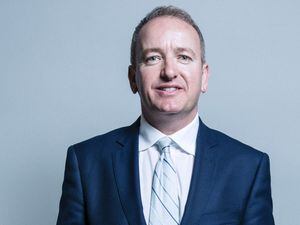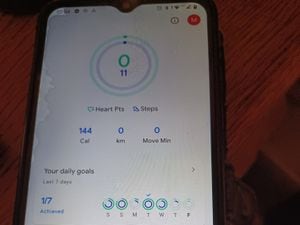Co-operation needed to reduce lengthy ambulance delays around Shropshire
Local authorities and hospitals must work with the ambulance service if wait times are to be reduced, a Shropshire MP has told the House of Commons.

Concerns have been growing in recent months about the growing length of time it has been taking ambulances in the county to arrive.
Mark Pritchard, MP for The Wrekin, said it was not the sole responsibility of West Midlands Ambulance Service to address growing concerns about 999 response times.
Mr Pritchard said the NHS and local councils must work more closely to reduce the amount of time ambulances are waiting outside hospitals.
During a debate in the Commons, Mr Pritchard told health minister Maria Caulfield: "It's not just about ambulance services, it's about local authorities – in my case Shropshire Council and the borough of Telford & Wrekin – also working with acute trusts, with the Shrewsbury and Telford Hospital Trust.
"It is a collective effort that is required, not a single effort by a single ambulance service."
There have been a number of reports in recent months about patients facing extended waits for help.

West Midlands Ambulance Service revealed crews and patients had spent 34,140 hours waiting outside hospitals in April – compared to just 5,732 for the same month last year.
In the week up to April 3, 72 per cent of ambulances arriving at the Royal Shrewsbury Hospital and Princess Royal Hospital experienced handover delays of 30 minutes or more – compared to just 27 per cent nationally.
The ambulance trust has spoken of the difficulties in getting patients into busy hospitals in Telford and Shrewsbury, while the hospitals have also outlined the problems in discharging health patients to places in community care.
Miss Caulfield told Mr Pritchard she agreed local government and NHS services needed to work more closely.
She said there were a number of factors behind the growing waiting times at A&E departments.
"While delayed discharges are not increasing, they are still a significant number and that does mean both the NHS and the local authorities have to be working together," she said.
Miss Caulfield said the Government had introduced integrated care boards (ICBs) to enable the NHS to work more closely with local government.
"We need to better co-ordinate the care between health and social care, so we can have better systems in place which mean we can discharge patients sooner," she said.
Miss Caulfield said there were also 1,200 hospital beds which had been kept empty, either due to measures to control Covid rates, or because patients could not be discharged.
She said she would be meeting with every single ICB member over the coming days to help address this matter.





